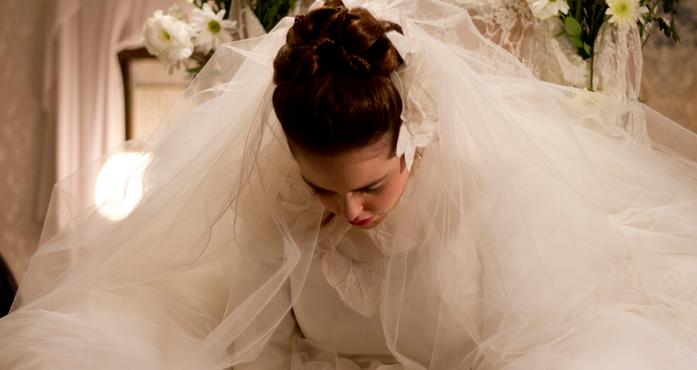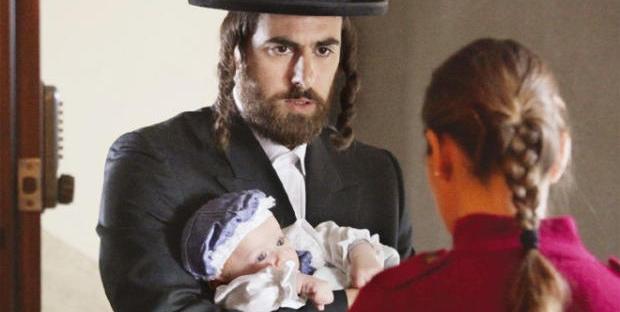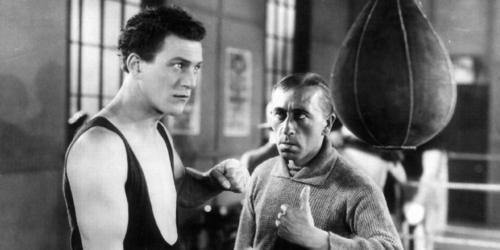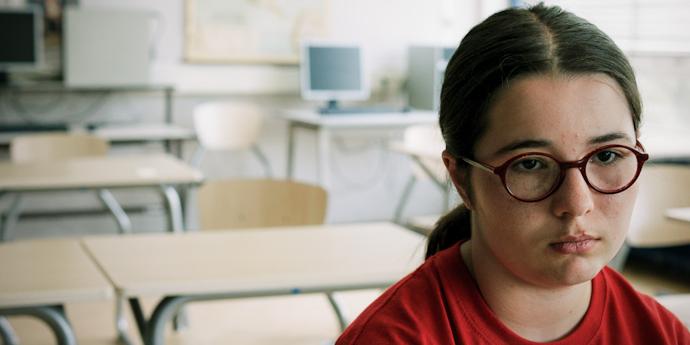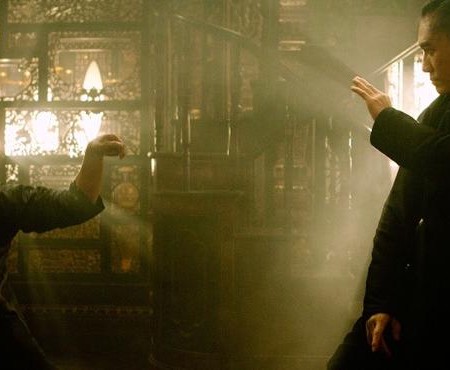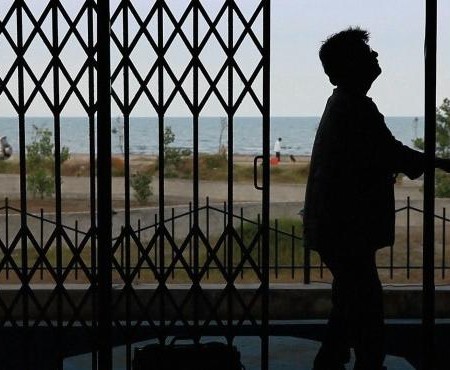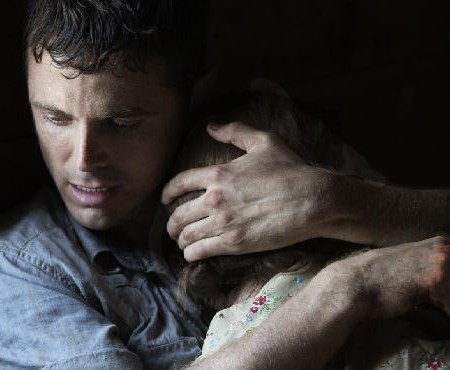Day three at the Karlovy Vary International Film Festival brought films new and old, good and bad, with something of a correlation between the two. No time for longwinded introductions, but be sure to check this space the next twenty-four hours for write-ups of days four and five, as well as my interview with director Lance Edmands, whose film Bluebird was a favourite out of Tribecca, and is playing in competition here in Karlovy Vary.
FILL THE VOID (Dir. Rama Burshtein)
Grade: B+
A tale of love, family and duty in deeply conservative Israel, Rama Burshtein’s Fill the Void is a profoundly tender and intimate piece of storytelling; no small feat considering the limitations placed on its director.
The story is told from the perspective of Shira Mendelman, an eighteen year old girl from Tel Aviv, whose life is thrown into turmoil after her older sister Esther dies in childbirth, leaving behind a shell-shocked husband, Yochay, to care for the newborn baby boy. The grieving process is long and painful, and compounded, for Shira’s mother Rivka especially, when Yochay gives thought to remarrying abroad. The prospect of losing her grandson as well as her eldest daughter too much to bear, Rivka offers her son-in-law an alternative: stay in Israel, and make Shira his wife instead.
A member of the same ultra-Orthodox Haredi sect in which her story takes place, Burshtein shot the movie in accordance with strict religious law, allowing no physical contact between male or female actors, and depicting no sinful behaviour onscreen. Yet rather than being a hindrance, such self-imposed restrictions prove a blessing. Hakas Yaron and Yiftach Klein are superbly restrained as the would-be couple, two people confined by convention and compelled by duty, even as familial affection grows tentatively into something stronger. Every line of Burshtein’s script is layered with unuttered meaning, and indeed, many of the film’s most powerful moment’s stem from words and feelings left unsaid.
Domestic drama aside, the glimpse the film offers outsiders into the ultra-Orthodox community proves absorbing in its own right; a reserved, ritualistic, immensely private culture that informs so much of what occurs in the film (to say nothing of how it was made). But despite the differences between their world and ours (or at least mine), relating was never problem. Humanity, Burshtein shows, is universal.
THE RING (Dir. Alfred Hitchcock)
Grade: D
Recently restored by the British Film Institute, the fourth of Alfred Hitchcock’s nine (surviving) silent films, first released in 1927, tells the story of a fair-ground boxer, ‘One-Round’ Jack Sander, whose fickle fiancé considers abandoning him for his rival. What follows is a novel historical document for hardcore Hitch fans, but uninspired plotting keeps the film from standing on merits of its own.
On a cinematographic level, The Ring is reasonably well made, with some striking dissolves and edits, as well as at least a hint of the familiar concerns and techniques for which Hitchcock would eventually become known. In addition to the nods towards spectatorship and voyeurism, particularly notable is the manner in which Hitchcock instils an object, in this case a serpent shaped bracelet, with a distinctive symbolic meaning, and then uses its presence to heighten the drama in the scene, or scenes, of his choosing.
Yet whatever the movie boasts in style, it lacks in narrative and character. Even at the time of the film’s release, the love triangle was hardly a new dramatic crutch, and sadly, Hitchcock’s uninvolving screenplay doesn’t age nearly as well as his direction. Jack is too spineless to gain much traction as a hero, while the simplistic depiction of his fickle lover Mabel smacks unambiguously of sexism. Not a good silent film; were it not for the legacy of its director, we wouldn’t be talking about it at all.
THE DEFLOWERING OF EVA VAN END (Dir. Michiel ten Horn)
Grade: B-
With pastel colours, symmetrical framing, deadpan humour and more familial dysfunction than you could shake a frikadel (a kind of Dutch sausage) at, Michiel ten Horn’s debut feature The Deflowering of Eva van End, recalls the work of Wes Anderson, with one important difference: unlike Anderson’s recent output, van End has a soul behind its obviously self-conscious style.
Although the title suggests the bulk of the film will be spent with Eva, a chubby, bespectacled, socially isolated teenaged girl, in reality ten Horn and screenwriter Anne Barnhoorn split their time fairly evenly between the entire eccentric van End clan, which, in addition to its overlooked youngest daughter, also includes timid patriarch Evert, stressed out matriarch Etty, as well as Eva’s two older brothers, delinquent high schooler Manuel and uptight, soon to be married Erwin. What sets the film in motion is the arrival of Veit, Eva’s blonde haired, wide-smiled, kind-hearted German exchange student, an embodiment of perfection who makes the van End family’s obvious faults seem just that much more pronounced.
There are no shortage of laughs to be had in Eva van End, with the comedy ranging from the relatively broad, to oddball, deadpan and even some darker moments in the vein of, say, Todd Solondz. As the perfect Viet obviously wreaks havoc on the van Ends, including inadvertently guilting Evert in donating thousands of Euro to an African orphan, and awakening dormant gay desires in Erwin, we see just how bad things can get when people stop communicating.
There are some problems arise from juggling so many subplots; clichés do arise, and upon reflection no one story feels as though it was given quite the time that it should have been. Ironically, had one plotline been cut to allow more time for the rest, it probably should have been Eva’s. Even so, it’s not at all hard to understand the film’s success on the international festival circuit. Ten Horn even noted prior the screening how few comedies there were at KVIFF this year; certainly from my perspective, his picture’s off-kilter charm proved a refreshing reprieve from the bleakness.

















